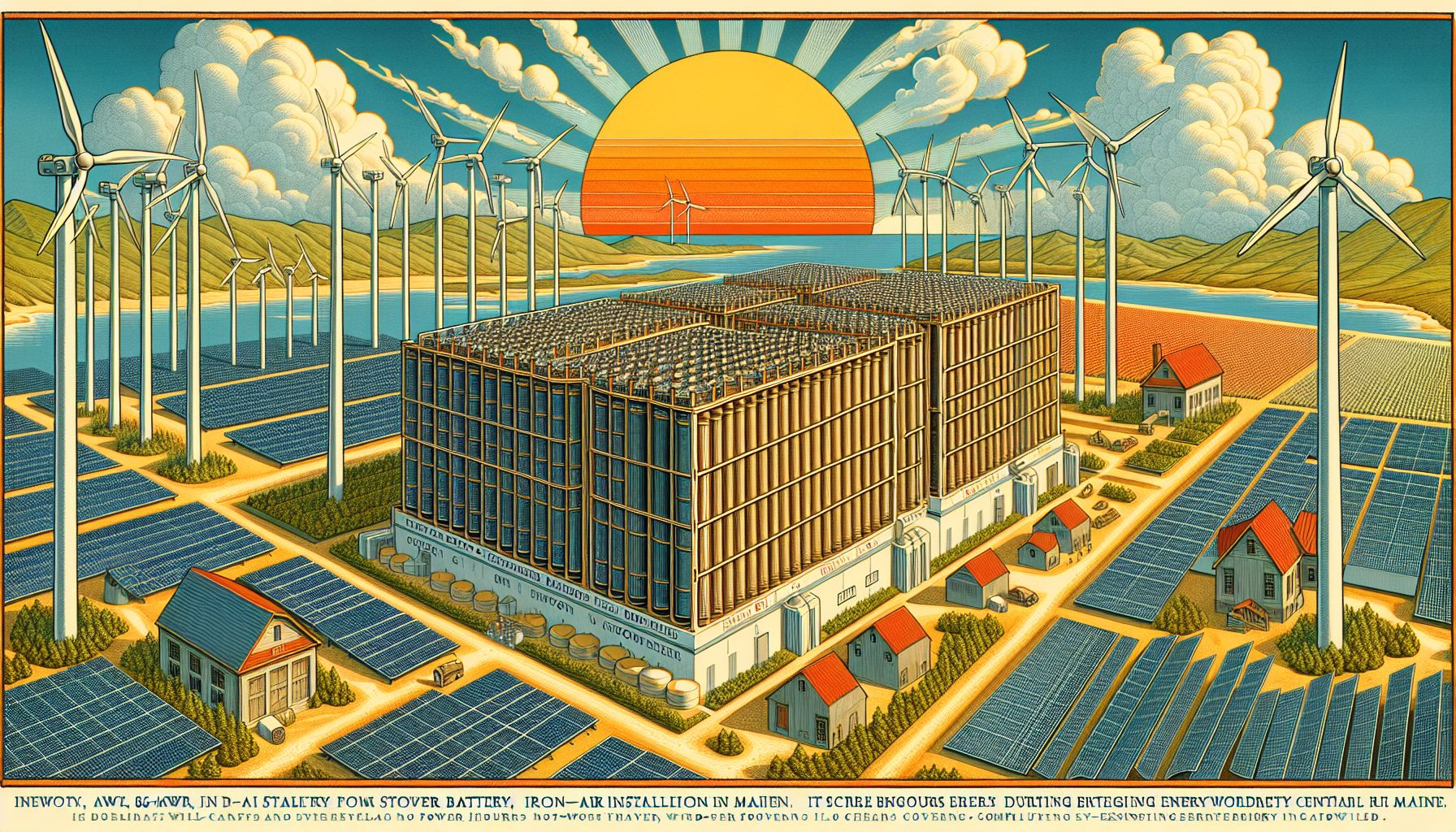Maine to Host World's Largest Iron-Air Battery for Grid Stability

Maine, Thursday, 22 August 2024.
Form Energy secures $147 million from DOE to build an 85 MW/8,500 MWh iron-air battery in Maine, addressing New England’s grid vulnerabilities. The project, set to complete by 2028, aims to store wind energy and provide power for up to 100 hours, surpassing existing battery installations worldwide.
Addressing Grid Stability
Form Energy’s ambitious project aims to tackle the pressing issue of grid stability in the New England region. By leveraging a $147 million grant from the U.S. Department of Energy (DOE), the company plans to build an iron-air battery capable of delivering 85 megawatts (MW) of power and storing up to 8,500 megawatt-hours (MWh) of energy. This substantial capacity will enable the battery to discharge power for up to 100 hours, which is significantly more than the typical duration of conventional lithium-ion batteries.
Innovative Technology
Form Energy’s iron-air battery technology is a groundbreaking innovation that utilizes the rusting process of iron to store and discharge energy. This method promises to be more cost-effective than traditional lithium-ion batteries, offering a more sustainable and economical solution for long-duration energy storage. The Maine project will be the first of its kind, marking a significant milestone for Form Energy, which has been developing this technology since its founding in 2017.
Strategic Location and Impact
The battery will be constructed in Lincoln, Maine, a site chosen for its strategic importance to the New England grid. The region faces significant energy supply challenges, particularly during the winter months when the demand for electricity surges. By storing excess energy generated from offshore wind farms during peak production times, the iron-air battery will help stabilize the grid and ensure a reliable power supply during periods of high demand and extreme weather conditions.
Economic and Environmental Benefits
In addition to enhancing grid stability, the project is expected to have substantial economic and environmental benefits. The construction phase is projected to create approximately 100 jobs, with 5 to 10 long-term operational positions once the battery is fully functional. Moreover, the project supports Maine’s ambitious policies promoting renewable energy and heat pumps, reducing the region’s reliance on fossil fuels and lowering greenhouse gas emissions.
Future Prospects
Form Energy’s CEO, Mateo Jaramillo, has emphasized that the Maine installation is just the beginning. The company has plans for similar or larger projects in the future, aiming to replicate the success of the Maine project across other regions facing similar grid stability issues. With its first factory in Weirton, West Virginia, nearing completion, Form Energy is poised to scale up production and deployment of its innovative iron-air battery systems.
Bronnen
- www.canarymedia.com
- www.energy-storage.news
- cleantechnica.com
- www.theintelligencer.net
- forgeglobal.com
- www.rtoinsider.com

